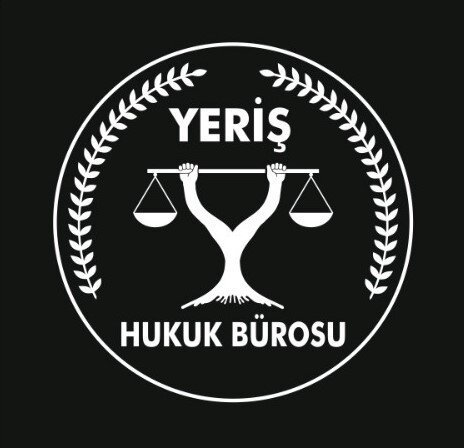Best Employment Rights Lawyers in Istanbul
Share your needs with us, get contacted by law firms.
Free. Takes 2 min.
List of the best lawyers in Istanbul, Turkey
Turkey Employment Rights Legal Articles
Browse our 1 legal article about Employment Rights in Turkey written by expert lawyers.
- Workplace Accidents in Turkey: Protecting Your Business and Your Employees
- Turkey has one of the highest rates of workplace accidents globally, with nearly 2,000 work-related fatalities reported in 2024 alone. Workplace safety is not just a legal obligation; it's a critical factor in the success and sustainability of your business. As a business owner, understanding the legal framework, financial implications,... Read more →
About Employment Rights Law in Istanbul, Turkey
The Employment Rights Law in Istanbul, Turkey is mainly governed by the Labor Law No. 4857. This law underlines all the fundamental rights related to the work life of an employee including contracts, wages, working hours, overtime, holidays, workplace safety, termination policies, and much more. The law is designed to foster a fair and balanced work environment and applies to all employees working within the boundary of Turkey, including foreigners.
Why You May Need a Lawyer
In many situations, employees may require the expertise of a lawyer specializing in employment rights. These may include instances such as wrongful termination, workplace harassment or discrimination, violation of workers' rights, wage and overtime disputes, or unfair treatment. An experienced lawyer can provide valuable guidance during these complex situations, and can help you navigate the legal process, protect your rights, and strive for a fair resolution.
Local Laws Overview
In Istanbul, the local employment laws particularly emphasize the employee's right to fair treatment, dignity, safety, and suitable remuneration. Noteworthy aspects include clearly defined maximum working hours and mandatory overtime pay. Terminations are strictly regulated, with definite policies for severance pay and lawful reasons for dismissal. The Labor Law also mandates equal treatment of all employees, prohibiting any form of discrimination based on nationality, race, gender, or any other criteria. Furthermore, the law protects the right to form and join unions.
Frequently Asked Questions
What is the standard working time in Istanbul?
The regular working time in Istanbul is 45 hours per week, and any work beyond these hours is considered overtime and should be remunerated accordingly.
What can I do if I'm wrongfully terminated?
If you believe you were wrongfully dismissed, you can consult with an employment lawyer and potentially file a claim against your former employer. If proven, you could be entitled to severance, back wages, or even reinstatement.
Does the law protect against workplace discrimination?
Yes, Turkish Labor Law maintains a strict non-discrimination policy, protecting employees from discrimination on the basis of nationality, race, gender, or any other personal characteristic.
Are foreign employees protected by the law?
Yes, foreign employees are protected by Turkish Employment Law just like regular Turkish employees, provided they work within the boundaries of Turkey.
Can I form or join a union at work?
Yes, Turkish law gives employees the right to form and join labor unions for negotiaton of terms of employment, working conditions and dispute resolution.
Additional Resources
The Ministry of Family, Labour and Social Services is a central governmental body in Turkey offering resources and information relating to employment rights. The Union of Turkish Bar Associations also provides resources and legal support regarding labor and employment law. Furthermore, you can reach out to worker's organizations, local NGOs working on labor rights as well as international agencies such as the ILO.
Next Steps
If you require legal assistance in matters related to employment rights, you should seek help from a lawyer experienced in employment law. Begin by scheduling a consultation, where you can discuss your situation in depth, understand your rights, and determine the best course of action. It is advised to gather all relevant documents, such as employment contracts, salary slips, any written communication or evidence that can strengthen your case before consultation.
Lawzana helps you find the best lawyers and law firms in Istanbul through a curated and pre-screened list of qualified legal professionals. Our platform offers rankings and detailed profiles of attorneys and law firms, allowing you to compare based on practice areas, including Employment Rights, experience, and client feedback.
Each profile includes a description of the firm's areas of practice, client reviews, team members and partners, year of establishment, spoken languages, office locations, contact information, social media presence, and any published articles or resources. Most firms on our platform speak English and are experienced in both local and international legal matters.
Get a quote from top-rated law firms in Istanbul, Turkey — quickly, securely, and without unnecessary hassle.
Disclaimer:
The information provided on this page is for general informational purposes only and does not constitute legal advice. While we strive to ensure the accuracy and relevance of the content, legal information may change over time, and interpretations of the law can vary. You should always consult with a qualified legal professional for advice specific to your situation.
We disclaim all liability for actions taken or not taken based on the content of this page. If you believe any information is incorrect or outdated, please contact us, and we will review and update it where appropriate.

















